Montessori Circle Time plays a crucial role in fostering socialization and community building among children. Integrating this activity into the Montessori schedule, whether daily, every other day, or weekly, enhances children’s development across multiple domains.
Circle time provides a structured opportunity for children to develop social skills, such as turn-taking, listening, and respectful communication. These essential skills help them interact positively with their peers and build strong relationships.
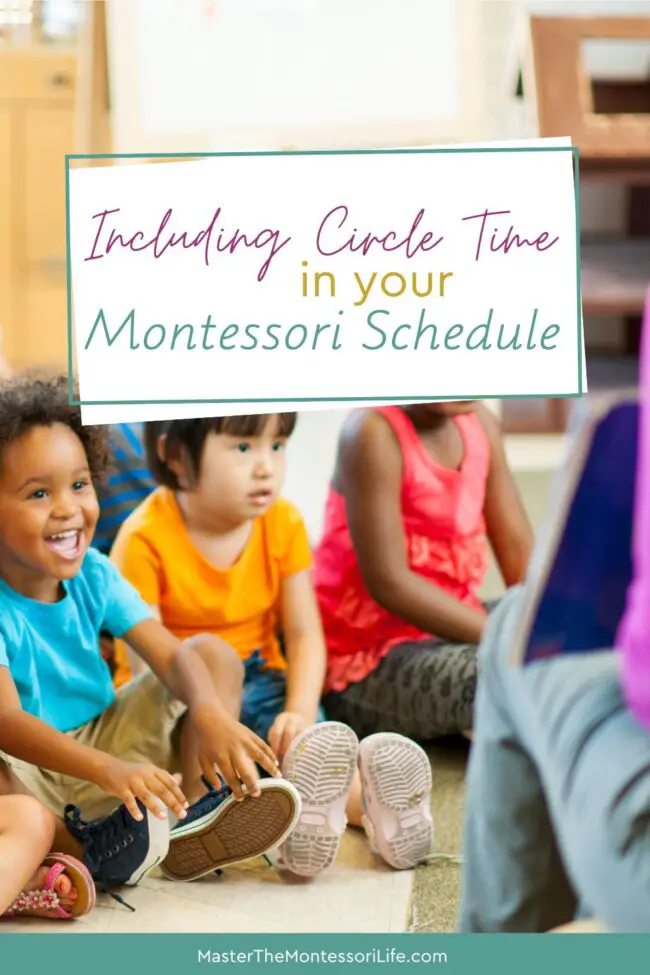
Versatility of Circle Time
The flexibility of circle time activities allows educators to tailor sessions to the developmental needs and interests of the children. Activities such as art & craft, nature exploration, themed circles, movement and exercise, puzzles, role-playing, science experiments, and language games, make circle time dynamic and engaging.
These varied activities not only cater to diverse learning styles but also help in developing fine motor skills, creativity, environmental awareness, cultural appreciation, physical coordination, critical thinking, teamwork, imagination, scientific curiosity, and literacy skills.
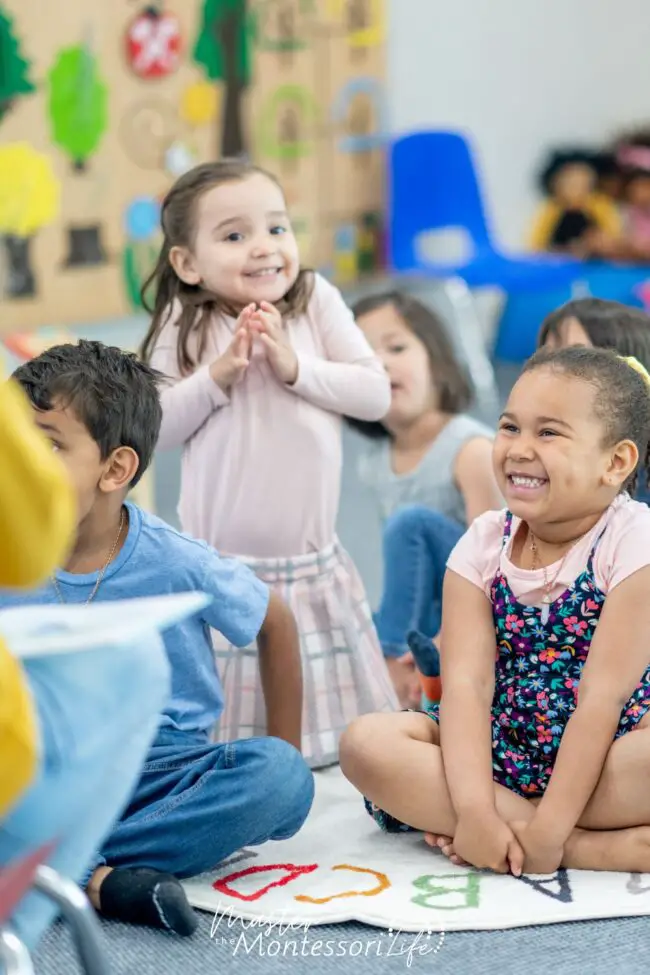

Montessori Circle Time A Socialization Opportunity Digital Book
$9.99
Implementing Montessori Circle Time
Effectively implementing circle time requires preparation and flexibility. Educators are encouraged to set clear expectations, keep sessions engaging but brief, encourage active participation, use positive reinforcement, and adapt activities based on the children’s responses and abilities.
Modeling respectful behavior and regularly reflecting on the effectiveness of these sessions can significantly enhance the experience for both educators and children.
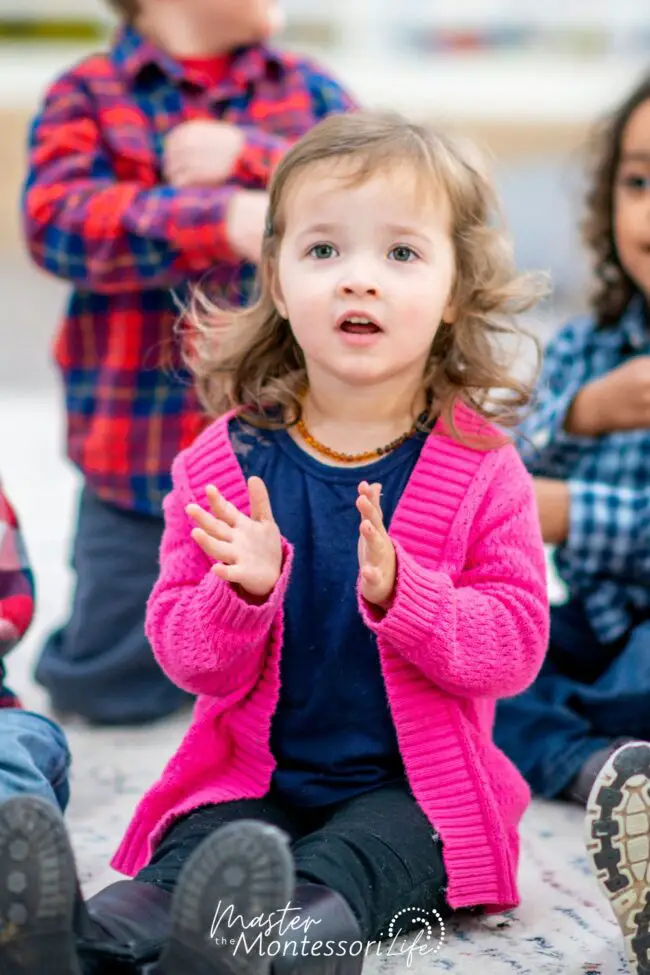
In Conclusion
Circle Time the Montessori way is not merely a routine. It is a pivotal part of the daily schedule that facilitates significant social, emotional, and intellectual growth. By incorporating well-planned and thoughtful social activities, Montessori educators can create a nurturing environment where children feel valued and connected.
Parents and teachers are encouraged to explore resources such as Master the Montessori Life to further enrich their socialization sessions. And they can support the holistic development of children in their care.
You might also enjoy these relevant topics:
- What is Circle Time in Montessori?
- Montessori Circle Time
- Episode 4: What is Circle Time?
- The Importance of Socialization with Montessori Circle Time
- Including Circle Time in your Montessori Schedule
Go to thenaturalhomeschool.com and search Montessori Circle Time for more resources.
- Including Circle Time in your Montessori Schedule
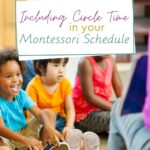 Spread the love Montessori Circle Time plays a crucial role in fostering socialization and community building among children. Integrating this activity into the Montessori schedule, whether daily, every other day, or weekly, enhances children’s development across multiple domains. Circle time provides a structured opportunity for children to develop social skills,…
Spread the love Montessori Circle Time plays a crucial role in fostering socialization and community building among children. Integrating this activity into the Montessori schedule, whether daily, every other day, or weekly, enhances children’s development across multiple domains. Circle time provides a structured opportunity for children to develop social skills,… - The Importance of Socialization with Montessori Circle Time
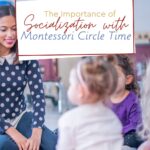 Spread the loveIn the heart of Montessori education lies an opportunity for profound social and emotional growth: Circle Time. This essential practice nurtures community connection and fosters the development of vital communication skills among young learners. As educators and parents, embracing Montessori Circle Time allows us to create a rich,…
Spread the loveIn the heart of Montessori education lies an opportunity for profound social and emotional growth: Circle Time. This essential practice nurtures community connection and fosters the development of vital communication skills among young learners. As educators and parents, embracing Montessori Circle Time allows us to create a rich,… - Practical Life Skills Montessori Cutting Practice
 Spread the loveIn this post, we will be discussing the topic of Practical Life skills, particularly Montessori cutting practice. Fine motor skills are those small muscle movements that babies, toddlers and young children learn to make. This particularly involves the hand muscles. Gross motor skills are larger muscle movements that…
Spread the loveIn this post, we will be discussing the topic of Practical Life skills, particularly Montessori cutting practice. Fine motor skills are those small muscle movements that babies, toddlers and young children learn to make. This particularly involves the hand muscles. Gross motor skills are larger muscle movements that…


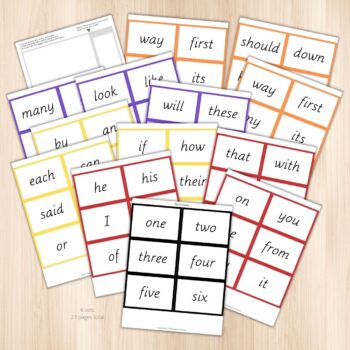




Leave a Reply